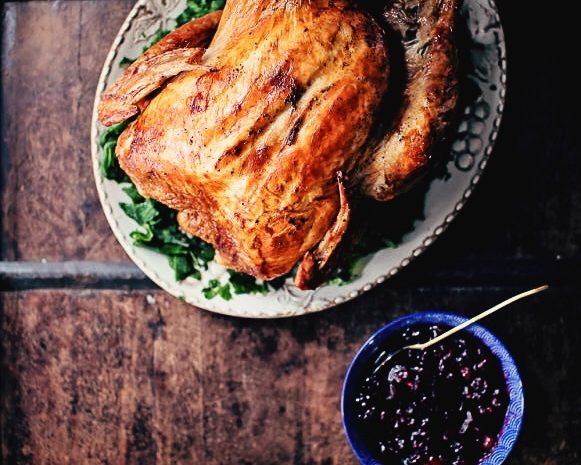
I don’t know about you, but this past year and a half of COVID parenting has turned me into mean mommy. Gone are my endless stores of patience for the tantrums and messes and snark. Gone is my happy-go-lucky, go-with-the-flow, find-humor-in-the-chaos mentality (insofar as I ever had one). No, sadly, I have not yet recovered from being stuck at home for 18 months with a toddler and kindergartener, from the Zoom school, and lack of help and 12 straight hours a day of momming. Things may be better now — one kid is back to full-time in-person school and the other has a little toddler class a few days a week; we had a part-time nanny; I have a semblance of my old life back — but my mood has not improved.
What gives?
The truth is, many of us (particularly those of us with children, or who worked amidst the front-line terrors of this pandemic, or both) went through a level of stress and adrenal fatigue that we may never have experienced before. Our nerves were shot, our cortisol levels sky-rocketed, and that’s not just something you can always bounce back from the second things get better.
For many of us, we are still dealing with the after-effects of that treacherous time, which can feel extra frustrating and confusing since in many ways, life is back to a semblance of normalcy.
So what are we to do?
I, for one, am fed up with feeling this way. I’m fed up with snapping at my kids and husband, and I’m sick of having a hair trigger that probably doesn’t make me the most fun person to be around. My kids will only be 6 and 2 once, and I don’t want to look back and feel like I missed these sweet, chaotic years by existing in a perpetual haze of annoyance.
In Ayurveda, the energy that is behind all things heated — inflammation, irritability, anger — is the Pitta dosha. Some of us have Pitta as one of the primary elements in our constitution, others may just be experiencing a Pitta imbalance due to all the insanity that we have recently gone through.
Take this quiz to find out your dosha!
Regardless, there is so much Ayurvedic teaching can offer us in terms of strategies to cool this Pitta fire, reclaim our calm, and become kind, patient people yet again. As always, the strategy requires looking at the the main pillars of wellness: diet, lifestyle, and supplementation.
The Pitta-Reducing Diet to Soothe Irritability
As with all things health-related, diet is probably the most important and central element to our balance. Unbeknownst to us, we put things in our bodies every day that make us feel worse, both physically and emotionally. Generally, when we’re looking to decrease pitta with our diets, we want to focus on the opposite energy. Pitta is heating, so we want to increase cooling foods and decrease heating foods.
Here are the 5 foods that irritate pitta the most:
- Heating spices: People with high pitta in their constitution tend to LOVE spicy foods (I submit as evidence my husband, who puts sriracha or hot sauce on literally everything), but that spice is going to make you more irritable, angry and inflamed. Avoid spicy foods, chili peppers, jalapeños, and cayenne.
- Sour foods: The same applies for the sour taste (I submit as further evidence my husband, who also puts vinegar on everything, along with hot sauce, and lives for pickles). Avoid too much sour citrus (limes are best for pitta), lots of vinegar and anything else too sour.
- Coffee: Stimulants, and specifically coffee, are super aggravating to fiery pitta. If you’re super dependent on caffeine for your daily survival (no judgement here), try green tea or matcha instead, which has cooling properties that will keep your pitta in check and actually serve to soothe that irritability!
- Red meat: Red meat is really heating in the body, which is of course no good for pitta, increasing anger and inflammatory conditions. If you eat meat, opt for chicken or fish, which are much lighter, or better yet, rock some beans instead!
- Alcohol: I know, I know, you hate me. But believe it or not, that nightly drink is actually doing more to increase your stress, tension and crankiness in the long run. Shoot for keeping drinking to just a few nights a week, and stick to white wine like a dry chardonnay, which is less heating.
Ok now that you officially want to kill me, here are the foods you can increase to keep pitta at bay!
- Naturally sweet foods like root veggies, bell peppers, fruit, oats, alliums, and rice. Sweet is a flavor that literally sweetens that pitta fire, helping you feel calmer and happier. Obviously processed sugar isn’t going to help anything, but foods that have a naturally sweet flavor are just the thing!
- Naturally cooling foods like greens, cucumber, and fruit. Salads are amazing for pittas any time of year, but if you have any Vata in your constitution, opt for cooked greens in the colder months.
- Cooling herbs like coriander, fennel, cardamom and cilantro are awesome for pitta, cooling your jets from the inside out. Try cooking with them or making a yummy digestive tea by mixing equal parts cumin, coriander and fennel seeds.
- Green or white tea: Unlike coffee, green and white teas are light, cooling and contain EGCG and l-theanine, which have calming, stress-relieving qualities.
- Ghee: clarified butter (from grass-fed cows) is a form of dairy that is actually wonderful for pitta. It’s cooling and soothing to the nervous system and the gut (the seat of so much pitta instability) which translates into a calmer mood (and happier tummy) all day long. Try starting your day with a Bulletproof Matcha by blending a tablespoon of ghee into matcha, and adding a cooling milk like coconut or oat. Sweeten with a non-stimulating sweetener like stevia or monk fruit.
Pitta-Reducing Supplements To Relieve Stress and Anger
- Gotu Kola: This cooling adaptogen is amazing for relieving stress, promoting mental clarity and calm, and improving sleep quality. It’s one of my favorite Ayurvedic remedies for irritability. Sometimes I take an extra dose in the afternoon if I need a bit more calming balance!
- Tulsi: Dubbed “the incomparable one” in Sanskrit, this adaptogen is a brilliant multi-tasker, promoting stress relief, calm, happy mood, immunity and digestion.
- Shatavari: This hormone balancer is particularly good for women, and soothes the hormonal aspect of that pitta irritability. It promotes a calm mind and feelings of love and devotion, as well as immunity and digestion. It also relieves symptoms of PMS, helps regulate your menstrual cycle, and can soothe symptoms of perimenopause.
- Fish oil: Omega-3’s are amazing for relieving stress and irritability, and unless you eat fatty fish (like salmon or sardines) several times a week, you are likely deficient. Pop one of these twice a day.
- Vitamin D: Here’s another nutrient that most of us are deficient in (especially if you live in cooler climates), which causes all kinds of physically and emotional issues ranging from compromised immunity to depression to irritability. 2000 IU per day is enough for most people (check out this fish oil + D combo), but if you’re in the midst of winter and don’t get any sunlight on your skin, I would rock 4000 IU during the colder months.
- Mint: Teas made from peppermint or spearmint are cooling to pitta all-around, soothing the gut and the mind. Try this combo Tulsi Peppermint Tea for bonus stress-busting magic.
- Rose: Rose has a particularly soothing quality to fiery pitta, promoting calm, pleasant feelings that are the ultimate antidote to all that irritability. I’m a big fan of Tulsi Sweet Rose Tea, which combines several calming herbs making for a perfect evening soother.
Pitta-Reducing Lifestyle Changes to Cool Your Jets

Soothing irritability and frustration requires more than just cooling food and herbs. In fact, making some crucial changes to your lifestyle habits is where the true changes will take hold.
Here are some of my favorite lifestyle Ayurvedic remedies for irritability:
- Increase your downtime. Pitta energy is what makes you go-go-go — it’s ambition, perfectionism, control. But when that energy is allowed to fully take hold, the mind has nowhere else to go, and it’s only a matter of time before the imbalance spreads to the rest of your body, causing issues ranging from digestive disorders (ulcers, IBS, loose stools) to migraines and inflammatory skin conditions to heart disease. Make sure to take ample time at the end of the day to relax and unwind, and force yourself to slow down on weekends to ensure time for some R&R.
- Focus on YOU. For some of us, especially moms, this irritability comes from feeling stretched thin, overwhelmed and unappreciated for all that we do (which is, in all seriousness, everything). So to loosen up some of that energy, make sure you do something for yourself every day.
- Increase time in nature. Natural beauty has a way of soothing pitta irritability and anger, so make it a point to hit up a park, go hiking, get to the beach, or even take a walk outside every day to calm those fiery feelings. Bonus points if there’s water involved, which is particularly soothing to pitta.
- Incorporate some yoga into your workout routine. Pittas can get really intense with their workouts, which can sometimes actually serve to increase those angry pitta feelings. Balance out your higher intensity workouts with vinyasa yoga (NOT hot yoga) that focuses on the breath and calming, fluid movements. But even if you’re not a pitta dosha, yoga will be just the thing to get you out of that irritable, frustrated head space. It moves energy through the body, helps balance hormones, and calms the the mind. Start with once a week and increase if it feels good! Try this 18 minute yoga for anger sequence.
- Meditate. Meditation does wonders to calm the mind and lower those stress hormones that have us snapping at everything little thing. Ideally, start your day with a 15-20 minute (or more) meditation practice, but if that’s not doable, a few 3-5 minute mini-meditations throughout the day will help a lot as well. I love the Breathe App on my Apple Watch for this. Try this 10 minute meditation for inner peace.
- Avoid overheating. This is more for those with pitta already in their constitution, but even if you don’t, letting your body overheat is going to exacerbate those hot feelings of irritability and anger that you’ve got going on. Make sure to dress in layers, so you can easily shed one if you feel yourself getting hot, and avoid doing strenuous exercise in hot weather or in a hot room. Basically, you need to keep your body cool to keep your mind cool.
- Get enough sleep. This one should be obvious, but honestly, there’s nothing like a crappy night’s sleep to make you a crabby monster for the day ahead. Make that several nights of crappy sleep, and you’re looking at a chronic condition of crabbiness. Eight hours a day can feel like a long-shot for many of us, but even a consistent seven can do the trick. Use a sleep mask and a noise machine to maximize your deep, REM sleep, and for god’s sake, go to bed earlier! No one needs that 3rd episode of The Bachelor. If you have trouble falling asleep, try some Tulsi Sleep Tea or pop 1-3mg of melatonin 30 minutes prior to bedtime to get yourself primed for sleep.
There are so many factors that contribute to our feelings of irritability, and some are sneakier and more difficult to detect than others. If you’ve tried the strategies above and are still feeling out of sorts, it’s time to get some more detailed answers. Schedule a full hormonal panel and metabolic panel with your doctor to get a sense of how your body is working. You can get your cortisol levels tested as well.
Personally, even just writing this was a good reminder for me on what practices I’ve been sliding on. This week, I’ve been swapping my cacao chai lattes for matcha lattes and have been sneaking in 3 minute meditations throughout the day. That, plus adding in an extra dose of gotu kola in the afternoon (before school pickup) has really been helping me get my irritability in check. Now I’m going to add in a few more strategies in the evening to help me not become scary mommy during all the pre-bedtime drama. Here’s to keeping our cool and being the people/parents/humans that we want to be!





 As we head into this final stretch of winter, we all seem to be getting a little fed up with the cold and the havoc it can wreak on our bodies and minds. I moved all the way across the country from New York to sunny Santa Monica to escape winter, and even here, in the temperate 60 degree winter temperature range, my feet are cold, I’m sipping hot tea all day long, and I’m pretty much living in my long, chunky knits.
As we head into this final stretch of winter, we all seem to be getting a little fed up with the cold and the havoc it can wreak on our bodies and minds. I moved all the way across the country from New York to sunny Santa Monica to escape winter, and even here, in the temperate 60 degree winter temperature range, my feet are cold, I’m sipping hot tea all day long, and I’m pretty much living in my long, chunky knits. This time of year, everyone seems to be complaining about their seasonal allergies. I just got back from 5 days in Minneapolis, where the pollen count was a daily subject of conversation.
This time of year, everyone seems to be complaining about their seasonal allergies. I just got back from 5 days in Minneapolis, where the pollen count was a daily subject of conversation.











